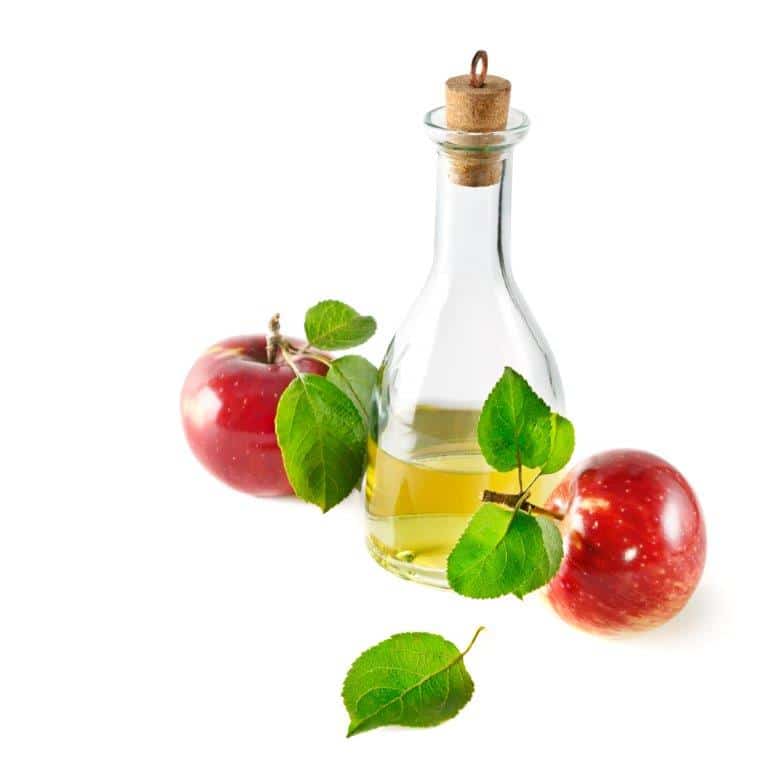
Question: I have heard that drinking apple cider vinegar is good for weight loss. Is that true, or is it too good to be true?
Answer: Apple cider vinegar has a cure-all reputation for helping with weight loss, cholesterol,
diabetes, acne, digestive problems and other issues. The truth is somewhat less impressive, but apple
cider vinegar does have proven health benefits.
Some small studies have found that vinegar can aid weight loss (Kondo et al. 2009). The vinegar may reduce food intake either by increasing satiety (Ostman et al. 2005) or by leaving people feeling nauseated (Darzi et al. 2014), which seems like a pretty miserable way to lose weight.
Vinegar has long been a folk remedy for diabetes, and recent science supports the association. Drinking about a tablespoon of apple cider vinegar before a meal helps to control blood sugar in healthy adults as well as adults with diabetes (Johnston et al. 2013). The effect seems to happen because vinegar reduces the digestion of carbohydrates (Johnston et al. 2010).
Apple cider vinegar has impressive antibacterial and antifungal properties, including against pathogens like Salmonella and E. coli that cause foodborne illness (Yagnik, Serafin & Shah 2018). Vinegar has been used for centuries to clean wounds and disinfect surfaces.
One caution: Vinegar is quite acidic (about 5% acetic acid) and can irritate the skin, mouth and throat. It can also harm tooth enamel. If you drink it, dilute a tablespoon in at least a cup of water. Better yet, use vinegar as an ingredient in food: vinaigrettes for grain salads, green salads and other vegetables. I use apple cider vinegar in my everyday salad dressing because I love its fresh, fruity flavor, but other vinegars likely have similar health benefits. Balsamic vinegar pairs beautifully with strawberries and is delicious with olive oil for dipping whole-grain bread.
Unpasteurized vinegar still contains the “vinegar mother,” or the bacteria that converts wine into
vinegar. Consider looking for unpasteurized brands, as those probiotic bacteria may have additional benefits.
References
Darzi, J., et al. 2014. Influence of the tolerability of vinegar as an oral source of short-chain fatty acids on appetite control and food intake. International Journal of Obesity, 38 (5), 675–81.
Johnston, C.S., Quagliano, S., & White, S. 2013. Vinegar ingestion at mealtime reduced fasting blood glucose concentrations in healthy adults at risk for type 2 diabetes. Journal of Functional Foods, 5 (4), 2007–11.
Johnston, C.S., et al. 2010. Examination of the antiglycemic properties of vinegar in healthy adults. Annals of Nutrition & Metabolism, 56 (1), 74–79.
Kondo, T., et al. 2009. Vinegar intake reduces body weight, body fat mass, and serum triglyceride levels in obese Japanese subjects. Bioscience, Biotechnology, and Biochemistry, 73 (8), 1837–43.
Ostman, E., et al. 2005. Vinegar supplementation lowers glucose and insulin response and increases satiety after a bread meal in healthy subjects. European Journal of Clinical Nutrition, 59 (9), 983–88.
Yagnik, D., Serafin, V., & Shah, A.J. 2018. Antimicrobial activity of apple cider vinegar against Escherichia coli, Staphylococcus aureus and Candida albicans; downregulating and microbial protein expression. Scientific Reports, 8 (1), 1732.
Sanna Delmonico, MS, RDS, CHES
"Sanna Delmonico, MS, RDN, CHE, is an associate professor at the Culinary Institute of America where she teaches food safety and nutrition. She previously led programming for the CIA Healthy Kids Collaborative and the CIA-Harvard Healthy Kitchens, Healthy Lives Continuing Medical Education Conference. Prior to joining the CIA, she was an instructor at Santa Rosa Junior College where she co-coordinated the dietetic technician program. Sanna develops delicious, seasonal recipes and writes about food and nutrition for publications, including IDEA Fitness Journal. She lives in Napa, California, and is a home winemaker."





